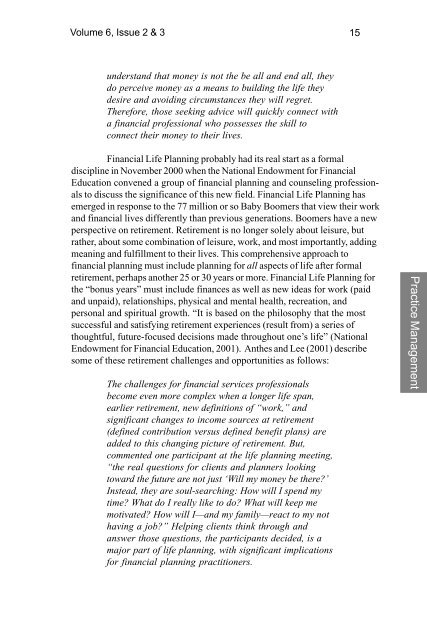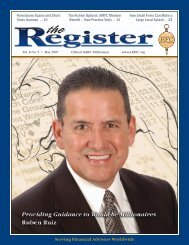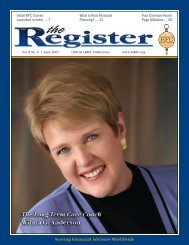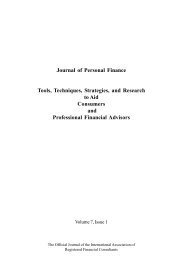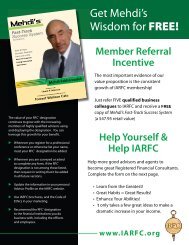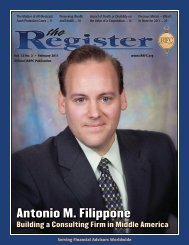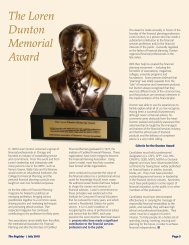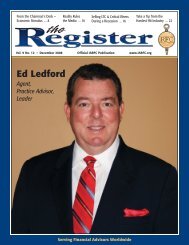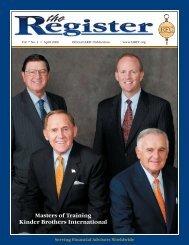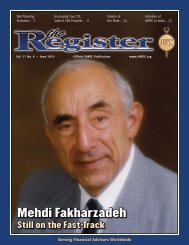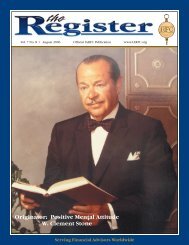3433-vol. 6 issue 2-3.pmd - iarfc
3433-vol. 6 issue 2-3.pmd - iarfc
3433-vol. 6 issue 2-3.pmd - iarfc
You also want an ePaper? Increase the reach of your titles
YUMPU automatically turns print PDFs into web optimized ePapers that Google loves.
Volume 6, Issue 2 & 3 15<br />
understand that money is not the be all and end all, they<br />
do perceive money as a means to building the life they<br />
desire and avoiding circumstances they will regret.<br />
Therefore, those seeking advice will quickly connect with<br />
a financial professional who possesses the skill to<br />
connect their money to their lives.<br />
Financial Life Planning probably had its real start as a formal<br />
discipline in November 2000 when the National Endowment for Financial<br />
Education convened a group of financial planning and counseling professionals<br />
to discuss the significance of this new field. Financial Life Planning has<br />
emerged in response to the 77 million or so Baby Boomers that view their work<br />
and financial lives differently than previous generations. Boomers have a new<br />
perspective on retirement. Retirement is no longer solely about leisure, but<br />
rather, about some combination of leisure, work, and most importantly, adding<br />
meaning and fulfillment to their lives. This comprehensive approach to<br />
financial planning must include planning for all aspects of life after formal<br />
retirement, perhaps another 25 or 30 years or more. Financial Life Planning for<br />
the “bonus years” must include finances as well as new ideas for work (paid<br />
and unpaid), relationships, physical and mental health, recreation, and<br />
personal and spiritual growth. “It is based on the philosophy that the most<br />
successful and satisfying retirement experiences (result from) a series of<br />
thoughtful, future-focused decisions made throughout one’s life” (National<br />
Endowment for Financial Education, 2001). Anthes and Lee (2001) describe<br />
some of these retirement challenges and opportunities as follows:<br />
The challenges for financial services professionals<br />
become even more complex when a longer life span,<br />
earlier retirement, new definitions of “work,” and<br />
significant changes to income sources at retirement<br />
(defined contribution versus defined benefit plans) are<br />
added to this changing picture of retirement. But,<br />
commented one participant at the life planning meeting,<br />
“the real questions for clients and planners looking<br />
toward the future are not just ‘Will my money be there?’<br />
Instead, they are soul-searching: How will I spend my<br />
time? What do I really like to do? What will keep me<br />
motivated? How will I—and my family—react to my not<br />
having a job?” Helping clients think through and<br />
answer those questions, the participants decided, is a<br />
major part of life planning, with significant implications<br />
for financial planning practitioners.<br />
Practice Management


